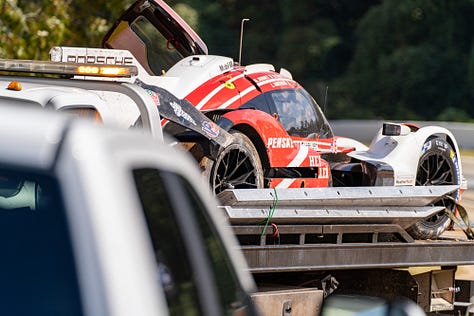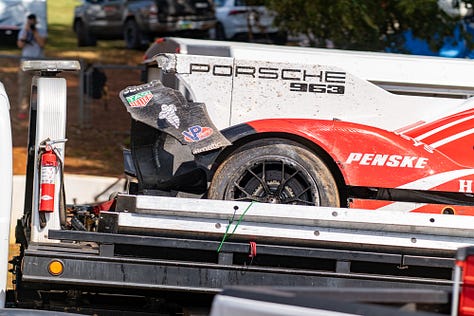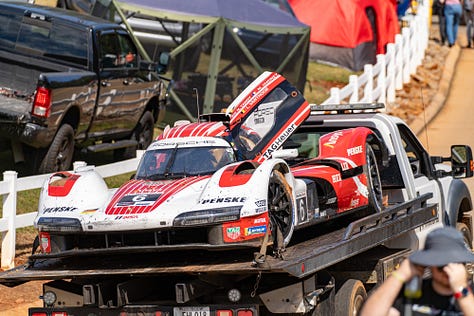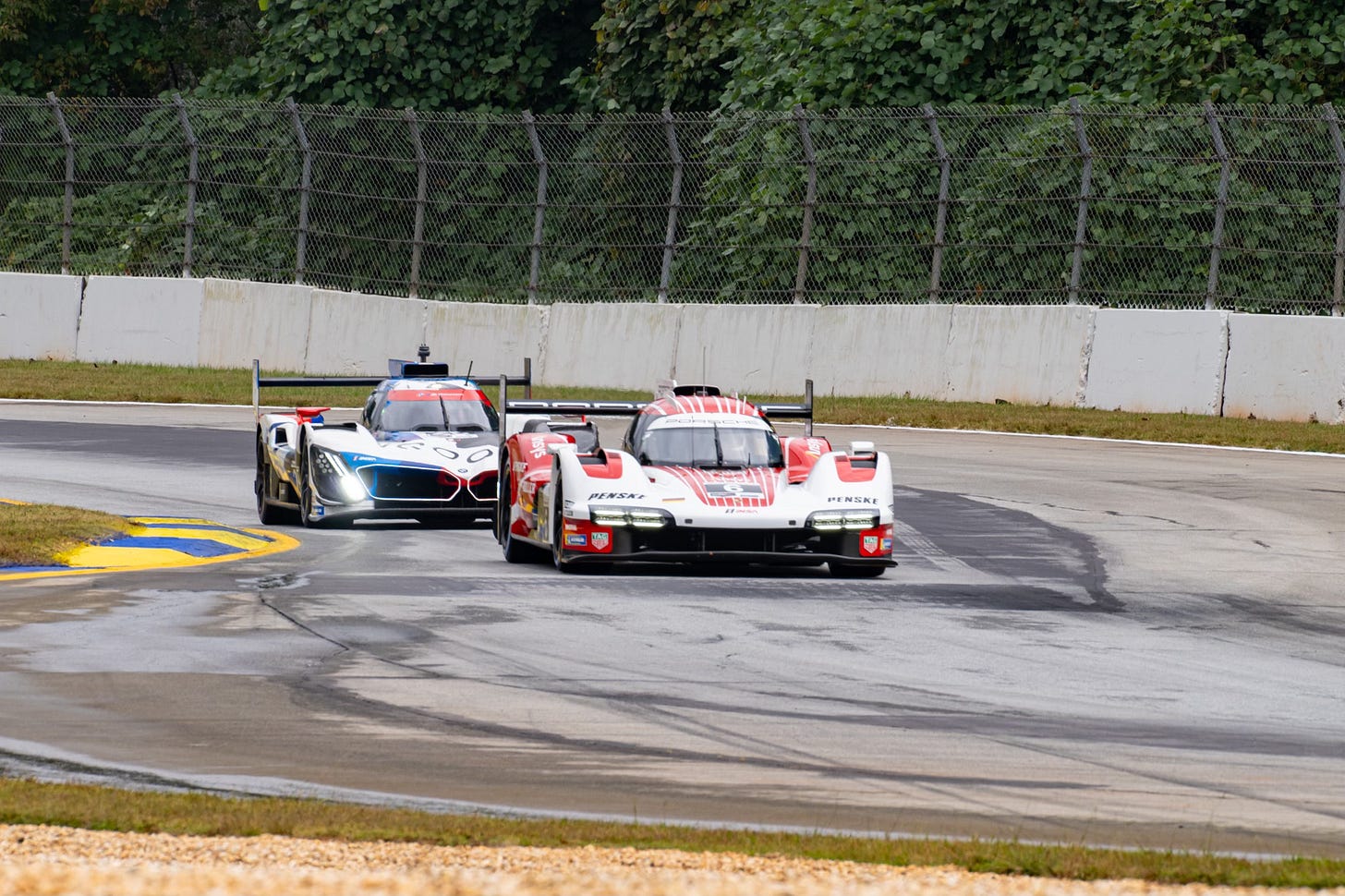What is luck anyway?
To many, there's no such thing
If you were to talk to people engaged in technical and dangerous pursuits like rock climbing, aviation, motorsports, etc., you would no doubt hear various opinions. On the subject of luck, my experience tells me that you would hear more of those people say they don’t believe in it or that you make your luck.
I agree that in many situations in life, you make your luck. Hard work, dedication, and perseverance often pay off in ways that appear to be “lucky” to people who haven’t witnessed the long hours of study or training that preceded success. But I’m not sure luck only exists as a by-product of your effort or lack thereof. That’s probably because I am a motorsports fan and have witnessed many hard-working drivers and teams do everything they should and yet still be defeated.
I was at the season finale race for the IMSA Weathertech Sportscar Championship series at Michelin Raceway Road Atlanta this weekend. This annual race is a ten-hour endurance event named “Petit Le Mans” in honor of the pinnacle of sportscar endurance racing, the 24 Hours of Le Mans held in France for the past 100 years.
Petit Le Mans is no stranger to spectacle that borders on legend, with championships in multiple racing classes typically on the line. The last several years have seen bold and borderline reckless pass attempts in the closing laps as teams have been in a situation where the race winner is also crowned the season champion. Imagine the pressure when a season of 10 or 12 races comes down to a final 10-hour event to determine who wins. And then that 10-hour race comes down to the last two laps. Rational thought and self-preservation are often abandoned, and the result is typically a dramatic championship victory or a pile of wrecked race cars.
But drivers make conscious decisions to take those risks, and luck rarely has much to do with it. Throughout the other nine-and-a-half hours of racing, luck can be found, some good, but a lot bad. This year’s event was no different, as several teams were struck down early in what can only be described as episodes of bad luck.
The first was a team I documented during the season-opening Rolex 24 at Daytona, the No. 6 Porsche Penske Motorsports entry into the top-tier prototype (GTP) class. The team entered the race third in the points for the season title, just five points behind the leader. When 30 points separate the first-place finisher from second place, five points is practically nothing.
The two Porsche entries have had an up-and-down season but seemed poised to be a genuine threat for the win. After little more than an hour of racing, the No. 6 car, with British driver Nick Tandy behind the wheel, lost all chances of winning the race and the championship. Tandy was approaching turn 10A, a hard braking zone after the fastest section of the track, when two cars ahead of him made contact, sending one of them into the side of his car, which then careened off the track and into the wall.
Tandy had done nothing wrong. He ran well with quick lap times and executed the team’s chosen strategy. He wasn’t pushing the limits, and he wasn’t making any risky passes. He was driving his lap, as were 50 other cars on the track. The two cars responsible for the incident weren’t in his class and weren’t racing Tandy; he was in the wrong place at the wrong time. Isn’t that bad luck?



If Tandy had been a few tenths of a second faster, he would’ve missed the wreck, a few tenths slower, and he would’ve seen it happen and had room to avoid the cars. Had his and the rest of the No. 6 team’s efforts throughout the season “made” this incident occur, or was this just bad luck?
Another team that suffered an ignominious defeat was the GTD Pro class entry from Corvette Racing. The factory-backed Corvette Racing team has been a staple in American sportscar racing for 25 years, but 2023 was its final year as Chevrolet is transitioning to a customer-based racing program for 2024. They have been among the best teams in the paddock with 127 victories, nine wins at the 24 Hours of Le Mans, and 14 drivers and manufacturers titles.
The No. 3 Corvette did not start the race in the pole position, but they soon found themselves leading the class. While they were not in contention for the season title, which was clinched by the No. 14 Vasser Sullivan Lexus RC F as soon as they took the green flag, they emerged as the car to beat on Saturday until about five hours into the race.
As long-time Corvette driver, Tommy Milner raced down the front straight and into turn one, the engine sputtered, and the car died. He was able to coast up the hill and into turn three before pulling off the track and out of the race. The exact cause was not apparent or announced at the track, but something in the engine let go, and a storied program lost the chance to end on a high note.
A mechanical failure could result from poor performance and fall into the “making your luck” category, but it can also be no one’s fault. You can do everything correctly and still have a part fail. I consider that bad luck and not of anyone’s making.
While Tandy and Milner may not say what happened to them was “bad luck,” I think most people would. I know I do. But what do I know? I’m a guy who flew every sortie in a 20-year career with the same 50-cent piece in my flight suit pocket. Not that I’m superstitious or anything. Because that would be bad luck.





